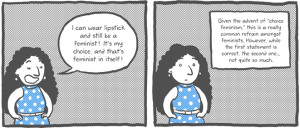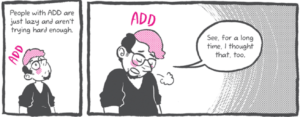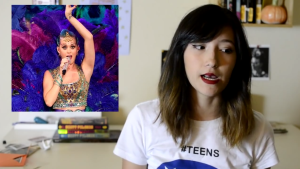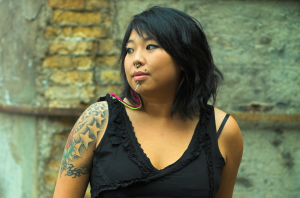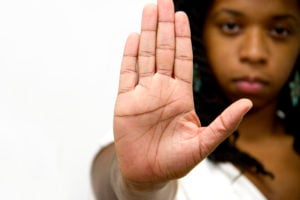
Credit: Queerlandia
It’s a pivotal moment: your friend tells you they’re LGBTQ. They’ve just exposed a vulnerable part of themselves and now they’re waiting to see how you react.
They’re waiting to see if you’re going to judge them, get uncomfortable, or support them in coming out.
Most importantly, they’re waiting to see if you’re still their friend. So what you say and don’t say right after they come out to you is important.
And we know you don’t mean to say the wrong thing. But there’s a good chance you might.
Even LGBTQ-Friendly Friends Still Mess It Up Sometimes
Even people who are completely accepting of homosexuality can still make coming out more difficult than necessary.
What is unfortunate is that LGBTQ-friendly friends often don’t even realize that they have made it more difficult for their friend who’s risking a lot by coming out.
The main way supportive friends end up being accidentally unsupportive is when they focus on themselves, not their newly out friend.
To help make sure you show your support in a way that actually feel supportive to them, we’ve created a list of do’s and don’ts in collaboration with two gay individuals, Chester and Octavian.
What To Do If Your Friend Comes Out
Your first reaction may be “yup, saw that coming,” “wow, I would never have guessed,” or “so how do you have sex?”
But before you say anything, remember that coming out is about them taking a brave step forward. Like any friend dealing with something difficult, be there for them.
- Let them come out to you: Even if it’s painfully obvious they’re LGBTQ, it’s their choice to come out to you. Remember that though you may be ready to hear it, they may not be ready to say it. Everyone deserves the right to come out in their own and in their own time.
- Don’t interrupt them: They’re admitting to something that they’ve internally struggled with and kept hidden from others for some time. It’s important to keep the focus on them rather than make it about you and how you feel about it.
- Let them know nothing has changed: What they’ve just told you is like telling you their astrological sign is Libra. It doesn’t change who they are as a person. They’re still the same person they were when you became their friend. They’re just LGBTQ, you’re just straight.
- Share that you support LGBTQ rights: A good and non-intrusive way of making it easier for your potentially LGBTQ friend to come out is to share your thoughts on homosexuality. You can casually mention that you support marriage equality, share a LGBTQ rights image on Facebook, or ask them if they want to join you at the gay pride celebration in DC. This supports them without targeting them directly.
What Not To Do If Your Friend Comes Out
- Don’t tell your other friends: Sometimes when you find out a friend is LGBTQ, you want to tell your other friends who are LGBTQ-friendly. But taking away an individual’s ability to decide whether or not to come out to certain people can be devastating and feel like you stole their new beginning. No matter how well you think your other friends will take the news, it’s still not your right to tell them.
- Don’t assume they know everything about being LGBTQ: It takes time for anyone to explore and understand their own sexuality. Additionally, since we live in a dominantly straight world, they’ll need to time to learn about the different communities and cultures within the LGBTQ world. They’re going to go through a learning process and some of it may be easy and welcomed while other parts may be confusing and difficult for them. Your LGBTQ friend could use your support during this process and probably doesn’t want to be your go-to-person for all your questions about homosexuality.
- Don’t question if they’re really LGBTQ or not: Sometimes LGBTQ people have relationships with people of the opposite sex before they come out as a way to fit into our dominant straight world. Sometimes they do afterwards too, if they’re bisexual or just exploring. Sexuality can be a fluid thing for some and hard and fast rule for others. Either way, let your friend determine how they identify their own sexual orientation and gender and don’t think you know better than they do.
- Don’t launch into the dangers of being out: Even if you have good intentions, don’t attempt to warn them for their own safety. Expressing fear around them coming out isn’t helpful. They already know there are risks involved and have probably played through different scenarios in their head many times. What’s more important is telling them you’ll be there for them if they face homophobia and/or transphobia.
If You Remember Nothing Else
Remember it’s their courageous moment when your LGBTQ friend shares with you something that some people may reject, condemn, or physically attack them for.
Be a friend to them as you would for any friend who is sharing something difficult with you. Let them know you’re still their friend no matter what their sexual orientation might be and that you’ll stand by them when they face homophobia and/or transphobia.
Why? Because that’s what a true friend does.
These are just some ways you can be supportive. There are many others.
What are some other ways you’ve supported a LGBTQ friend?
This article was written in collaboration with two gay individuals, Chester and Octavian. Their names were changed to protect their privacy. We thank them for helping us make sure this article would resonate with the experience of many LGBTQ people.
Amy Shaw is a contributing writer for Everyday Feminism. She is a recent graduate from Washington College where she studied International Studies and History and is currently working in Missoula Montana. Amy loves spending time outside, listening to music, and trying new vegetarian recipes.
Search our 3000+ articles!
Read our articles about:
Our online racial justice training
Used by hundreds of universities, non-profits, and businesses.
Click to learn more





